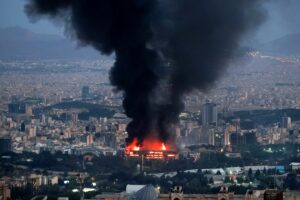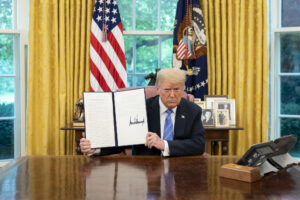It will be the exodus or the massacre. It will be chaos and death in any case, because the Ethiopian leaders left the people of Mekele, capital of the rebel province of Tigray, no other choice on Sunday. It was first up to the army to warn them that they should expect “no mercy” if they do not “free themselves” from the rebels of the TPLF, the Tigray People’s Liberation Front.
The general staff did not tell these civilians how to escape from the heavily armed warriors who have blended into their ranks, and Abiy Ahmed, the Prime Minister then rammed the point home. Honoured last year with a Nobel Prize for making peace with Eritrea, the man gave the TPLF “72 hours” to lay down its arms and surrender before the army is to be ordered to launch the offensive against Mekele.
Barring the unlikely surrender of the Liberation Front, civilians have nothing left to do but flee massively to neighbouring Sudan, a country bled dry that can in no way provide for the needs of the 30,000 or so Tigrayans who have already found refuge within its borders.
This is the foretold chronicle of a human tragedy, a “humanitarian catastrophe” as we say today, but who could prevent it?
The UN could interpose blue helmets, but the Security Council would have to decide to do so at a time when it is totally paralyzed by the agony of international cooperation, of this “multilateralism” that Donald Trump hated.
As the world’s number one army, the United States would have all the means to prevent this tragedy. For its outgoing president, it would even be the most beautiful way to make us forget the disgrace that was his mandate, but let’s not count on it. Mr. Trump does not care about the fate of people. He only cares about his own and, whoever their president is, the United States does not want to be the world’s policeman any more anyway because it has cost them too much, politically and financially.
So who then?
China? It has never even thought of buying the Lebanese ports which it could have bought at a good price and which would have opened the doors of the Middle Eastern markets. No, China is not going to get involved in a conflict that promises to be just as long as it is complex, but who, then, if not either of the two rivals of the century?
Russia? To ask the question is to answer it. Russia, neither, certainly not at a time when it does not know how to settle the Belarusian question any better than it knows how to emerge politically victorious from its military victory in Syria.
So there remains the EU, which is not totally disarmed.
With the exception of France, the 27 states of the European Union do not have real armed forces, but with several of them – four or five of them would be enough – they could still replace the United Nations and save Ethiopia, the honour of Europe and its stability at the same time.
The Union could do more than it thinks it can do, but it is to be feared that it will do nothing because very few of its capitals have a global vision, they feel little concerned and there is no European supreme command.
Without anyone moving, this is how a new war of Yugoslavia can develop in Africa.
With its 110 million inhabitants forming a mosaic of 80 peoples and 10 regions, each with its own identity, Ethiopia has all the potential of becoming a similar war, but much worse because it is not surrounded by states as stable and prosperous as those that had circumscribed the Balkan conflict.
In the East, Somalia and the Yemen war. In the North, Eritrea and its unbelievable dictatorship. In the West, a succession of fragile or warring countries. From the Red Sea to the Atlantic, the fallout from an Ethiopian civil war can quickly accelerate the descent into hell of an entire strip of the African continent, offer an immense exercise ground for terrorist groups and precipitate hundreds of thousands of refugees into a desperate flight towards Europe.
This conflict does not only threaten a whole part of Africa. It threatens us, the European Union, just as directly as the war in Syria continues to do. For us, the danger is as clear-cut as the “humanitarian catastrophe” is for Africa, but for lack of a common army to weigh in the balance, for lack of an awakening, for lack of a will to create and to affirm the Union as an actor on the international scene, we are remaining a powerless power and we are persisting too long, far too long, in this suicidal choice.



